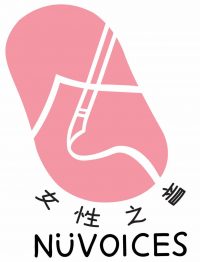BY LUNA HUANG
When Chuxuan (not her real name) was asked whether she had encountered sexual harassment on Chinese digital platforms, her answer was grudging and resentful: “Yes – a lot.”
Once, when she ordered food from an app in China, a delivery man harassed her, asking if she lived alone and stating that he now knew her address. Another time, Chuxuan used another app to call a taxi to go home from a train station in the middle of the night – only to have the taxi driver take her to an unknown road.
These are just two examples of countless incidents of gendered harassment made possible through digital platforms, which critics say fail to protect vulnerable users while perpetuating gender inequality. The lack of protections has led to the emergence of dangerous trends, including the widespread misuse of “deliveryman notes” (a mini-app on WeChat that provides information to delivery people on how to enter buildings; but has been used to share private information like whether a woman is living alone), and “opening box” 开盒 (the act of leaking users’ private information on the public internet).
One platform, Xiaohongshu (also known as Little Red Book or RedNote), began as an unusually safe space for women. Now among China’s most popular social media platforms, Xiaohongshu launched in 2013 as a product review app before evolving into a lifestyle platform primarily appealing to female users.
Yet in recent years, Xiaohongshu has begun expanding its demographic by encouraging male users to join – and shifting away from its female-friendly roots. The move is likely motivated by commercial considerations. Research into the app’s user base suggests that the majority who use the platform are concentrated in China’s more developed coastal cities, and under the age of 30 (the second largest age group is between 31 to 35 years old) – a lucrative demographic. Yet the gender make up of the platform was skewed: a 2021 report estimates that women accounted for 90 per cent of users, which meant that it was difficult to recruit big advertisers for a range of “male” products, such as liquor and automobiles, according to local media. In recent years, there appears to have been a concerted effort to court male users. In 2021, the company launched its “Male Content Creators Encouragement Programme” that supported male content creators by boosting the traffic of “male” content, such as sports. That year, the app also ran a campaign on Hupu (a sports news platform dominated by men) that stated: “Beautiful ladies are all here on Xiaohongshu, free to see, without spending any money!” Sixth Tone reports.
Recently, users have claimed that the platform has ignored their complaints about sexual harassment and discrimination. They’ve called for the app to respect its original female-friendly roots. The trend has prompted many female users to post phrases such as “men please get out of Xiaohongshu,” and even requesting the platform to come up with a new function to “block all male users.” Xiaohongshu did not respond to requests for comment.
Female users have reported a rise in sexual comments under their posts, and many women say they experienced a rise in harassment and discrimination, according to several users interviewed by NüStories. They’re fighting back by using hashtags to try and shield their posts from sexist users. Chunxuan, who shared her thoughts with NuVoices over a phone call, gave an example of how she began doing this by using the hashtag “Baby food” (#宝宝辅食) when posting her makeup selfies, which she wanted to share with other women without drawing the attention of male users.
This trend of using “feminine” hashtags to hide content from male users has become a form of female resistance on the digital platform. “After knowing the history of this hashtag as female resilience, I started to feel a sense of empowerment,” says another female user, who declined to be named for security reasons. Through using the hashtag, she feels safer and has experienced a sense of solidarity with other women content creators and users.
For another user who gave the name “Abai,” the hashtag trend was first introduced to her by the lesbian community, which she is a part of. “I didn’t think about feminist stuff, but I just didn’t want to be harassed by men on Xiaohongshu any more,” Abai explained, adding that she saw it as a way to connect and converse with others in the community online.
It’s unclear how long this form of resistance can be sustained. In order to fully protect women on Xiaohongshu and other digital platforms in the long run, we need to pursue gender equality on a systematic and institutional level. In 2023, the Chinese government released guidelines for cracking down on cyber violence” in an attempt to combat online harassment. Yet critics say they fall short of protecting users on social media platforms, which often perpetuate gender-based violence against women.
In the meantime, women content creators and users will continue to pursue innovative ways to fight back—and build solidarity.
About the author
Luna Huang is a freelance cultural journalist based in the Greater Bay Area of China. She’s a curious observer of cultural phenomenons and is eager to transform these observations into creative practices. Besides writing, she’s also an emerging curator. View her portfolio at http://luna-huang.journoportfolio.com

